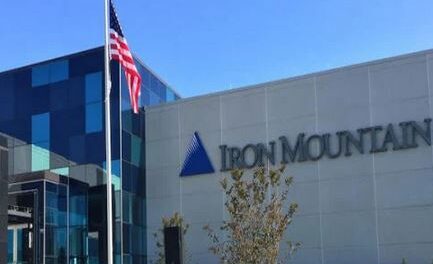By David Daoud: The fourth quarter of 2023 has been an active period for the ITAD and recycling industries on the merger and acquisition (M&A) front. Research from Compliance Standards LLC and E-Scrap News shows that between 9% and 11% of US ITAD companies are considering engaging in M&A activities at any given time, and this current quarter confirms that there is a strong appetite for non-organic growth.
Compliance Standards and E-Scrap News’ ITAD sector surveys showed evidence that 2023 was a difficult year for the sector, and the third quarter ended with many companies struggling with tough market conditions. Case in point is Envela, whose commercial segment in the third quarter 2023 showed revenues falling by 36% year on year, and profits down 24% over the same period. This period of difficulty provides a unique opportunity for companies with cash to purchase assets that fit their investment principles.
Private equity firms have been particularly keen on acquiring assets operating in sustainability sectors, as a result of either anticipating greater need for recycling in the years to come and/or because of the need for more productivity gains through structural reorganization. They have been more active at a time when many ITAD and recycling firms are facing difficulties amid a dismal 2023.
One of them is Southern California-based Tide Rock, which acquired the IT Asset Disposition unit of Chicago-based metallurgy company Sipi Metals, adding it to its portfolio of companies that include recycling firms American Recycling and Full Circle Electronics (FCE). In this acquisition, the Sipi ITAD assets have been integrated into Full Circle Electronics, with the latter now taking possession of the sites previously owned and operated by Sipi. Sipi kept its core metallurgy business.
While in public statements, the new owners speak of an acquisition that would “benefit existing Fortune 500 clients”, this acquisition was also largely motivated by the resulting cost reduction and productivity improvements that would drive transportation and logistics cost down, through a wider geographical footprint. Indeed, the acquisition propels FCE into the major league of ITADs, with a dozen facilities, and nearly doubling its workforce to some 370.
Also interesting is the recent acquisition of Sage by another private equity firm, Closed Loop Partners, with the operation handled by its Closed Loop Leadership Fund, which defines its core activity as “acquiring companies along the value chain to build circular supply chains.”
I exchanged email messages with Karine Khatcherian, Managing Director and Co-Head of the Closed Loop Leadership Fund, who noted the investment in Sage is in response to “the rapid growth of electronic waste, increasing corporate commitments around e-waste management and rising demand for increased transparency and data security in the IT Asset Disposition (ITAD) industry.” The firm says it targets companies that are active in “building solutions that advance the circular economy,” and has seen “an increasing amount of opportunity to invest in solutions to recover electronics, since e-waste has become the fastest growing waste stream.” Quoting data from BCG, Ms. Khatcherian says “less than 20% of electronics are properly reused or recycled worldwide, which translates to a lost value of more than $50 billion each year.”
The acquisition of Sage by Closed Loop Leadership Fund is expected to reenergize the ITAD firm as it enters 2024. Closed Loop Leadership Fund is not expected to be a “silent investor.” According to Ms. Khatcherian, “as Sage continues to grow, we will determine how we build the team to support the growth of the company,” a statement indicating that the investor will likely take a proactive role in determining the fate of Sage going forward.
One of the areas driving Sage’s growth now and in the foreseeable future is in strengthening its “reuse” philosophy, which has been a permanent position of Sage CEO Bob Houghton and founding partner Jill Vaske ever since I met them some two decades ago while they were managing ITAD firm Redemtech. The two executives have always insisted that the reuse of devices and electronics after they underwent their first lifecycle is a key contributor to a sustainable electronics market. Their views and positions have been reinforced by this latest investment/acquisition, which aims at “keeping technology in circulation for longer, helping ensure valuable materials do not end up in landfills and the environment,” according to Ms. Khatcherian.
Sage’s growth focus includes “new areas of innovation to improve the customer experience, and to expand the company’s capacity to grow, all while continuing to prioritize data security and privacy.” And so what we should expect is more investments in Sage’s “new eCommerce website, upgrades to its systems and reporting platforms, expanded APIs and improved service for these APIs and Sage Central 2.0, a new and improved client portal.”
There was also the important Iron Mountain’s purchase of Regency Technologies that made a lot of noise in the ITAD industry. This acquisition is important because it has been led by a big player and could have substantial implications in the ITAD space if executed properly.
M&A activities were not limited to the United States. In Asia, equipment leasing company CSI Leasing had a busy quarter with two relatively small transactions in Malaysia and Japan. It acquired Malaysian ITAD company ExportXcel to be part of its current ITAD firm EPC. ExportXcel is a small ITAD operator, handling only 15,000 assets annually, but CSI has plans to expand the company’s capacity to service more medium and large businesses in Asia. In Japan, CSI Leasing purchased a 20% stake in TRY Corporation, essentially allowing parent company CSI Leasing Japan to take full control of TRY, since CSI Japan already owned 80% of TRY. TRY is also a small operator with no more than 80 employees, processing some 200,000 assets per year.
What are the takeaways of the M&A trends in the ITAD space and what are our concerns?
First, it is evident that the difficult year 2023 has created a good environment for acquisitions. We have seen the same environment in the post-2008 financial crisis leading to Arrow Electronics buying a number of ITAD firms, most likely at low cost. The Arrow ITAD adventure did not go well as the integration phase was poorly executed and its go-to-market strategies not fitting the market’s structure and profile. But today’s ITAD industry stakeholders have learned from Arrow’s shortcomings and so they are savvier as most of the recent deals tend to show a good level of prudence and better due diligence, though a lot more can be done to minimize risk.
One of the areas that shows weakness in the way these acquisitions have been positioned in terms of their outlook in the understanding of what’s coming in 2024 and beyond. At Compliance Standards we believe that while issues of sustainability and corporate accountability will be important drivers of growth for ITAD and recycling in the years to come, they will not be the primary ones in 2024 and in the out years. The technological advancements imposed by Artificial Intelligence will have a more in-depth and lasting effects on the ITAD space starting as early as mid-2024.
As we analyze what leading tech firms are doing in preparation for 2024, we are anticipating revolutionary change (not evolutionary) in the foundational or fundamental technologies that form the basis of tomorrow’s IT systems and devices. The moves and investments that are being committed by the likes of Intel, AMD, Qualcomm, Nvidia, Microsoft and their OEM partners, suggest that AI is about to force major transformation in the device market, with critical implications on the recycling and ITAD sectors. A lot is at stake, with impact to be felt most likely within a year, but most ITAD companies have not yet been able to grasp what is going to happen soon. This is also the case of many executives in the private equity world whom we spoke with over the past month, and who remain unclear on how the changes in the foundational technologies will impact their investments next year and beyond.
Compliance Standards certainly advocates for a more comprehensive assessment of the impacts of the ongoing revolution taking place in the IT hardware and software industries to strengthen one’s M&A strategy in the recycling space. Only with such a comprehensive approach that one can reach a better risk and opportunity assessment.
Final thoughts: Compliance Standards is organizing two free conference calls on two related major topics in December 2023. In the first, we will hear from star analyst Bob O’Donnell on the shape of IT and devices in 2024. This session on December 4, 2023 will address what major tech firms are doing in the brand new equipment sector that would have an impact on ITAD in the near future and in the long term. The second will be a discussion with Jared Paben of E-Scrap News on what we can predict about the ITAD and recycling sectors in 2024. This second event is scheduled for December 11, 2023. Since space is limited, follow this link to sign up today: https://compliancestandards.com/2023-year-end-industry-briefing/






